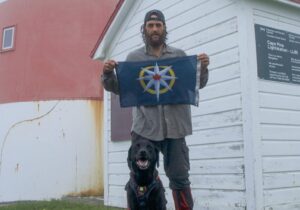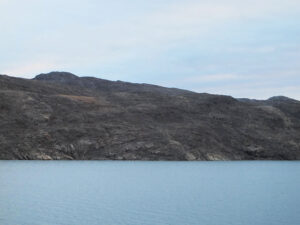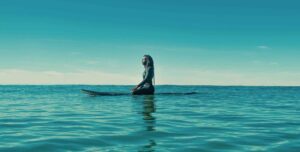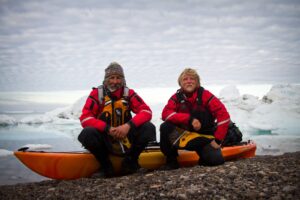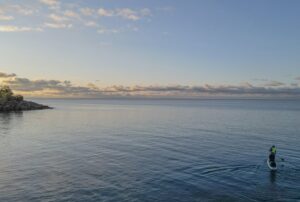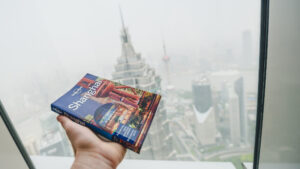A year and a half and 22,530 kilometres after setting off from Ushuaia, in Patagonia, Holly ‘Cargo’ Harrison completed one of the world’s longest trails, walking north to Prudhoe Bay, Alaska in just 530 days. He has thereby beaten his predecessor, a British explorer named George Meegan, who completed this journey in six years (1977-1983). Harrison averaged more than 24km every day, and once walked three times that amount within 24 hours.
Harrison’s successful completion was his second attempt. After tearing his tendon in 2015 near Chile, he returned home to North Carolina just long enough to recover, then set out again in December 2016, determined to fulfill his boyhood dream of becoming a great explorer.
To help handle the frequently difficult terrain, Harrison created his own hiking poles from baseball bats and parts of a leaf blower to ensure ample support and balance, particularly in mountainous areas. Despite his experience in long-distance hiking, Harrison was unable to escape the physical and mental tolls of this extreme quest. He lost about 25 pounds — “I expected it, though” — but this was only part of the story. Finding food in the villages of South America was difficult because fresh fruit, vegetables and raw meat were too heavy and bulky to carry. He lived mostly on hot dogs, bread, cheese and canned goods from gas stations and convenience stores. In remote areas, where these bastions of civilization were absent, he sometimes went four to five days between meals. For weight reasons, he carried only one to two days of water but supplemented this by sometimes scrounging the fluid from half-empty plastic water bottles on the road.

Harrison’s hiking poles made of leafblower parts and baseball bats. Photo: Holly Harrison
His diet became more stable after he suffered a heart attack in Arizona. During the last 3,200km, he described himself as having “an endless pit in my stomach” and “needing to eat constantly.” He also had to take to crutches while nursing an irritated tendon and pulled hamstring.

Harrison entering Alaska. Photo: Holly Harrison
Food and the physical toll were only part of the battle. It was not always easy to find a safe place to sleep. While he often chose hostels and hotels, he sometimes opted for efficiency (and economy) by sleeping in drainage pipes under the highway, especially while passing through hot sections, such as Arizona and Nevada. Quiet and cool, these “hotels under the highway”, as he affectionately calls them, provided a surprisingly cozy — and safe — opportunity to unwind.

One of Harrison’s many “hotels under a highway”. Photo: Holly Harrison
His concern with safety peaked earlier, as he approached the Darién Gap between Colombia and Panama. Known for harbouring paramilitary forces and traffickers in both drugs and illegal immigrants, this 106km jungle passage has been called the world’s most dangerous jungle by Outside magazine.
After much research, Harrison eventually sourced a local guide to see him safely to the Panamanian border. To his surprise, he was “treated like a king” by the insurgents, indigenous groups and traffickers. He described this experience as “the most enlightening part of the trip”. Unfortunately, as he arrived in Panama, he had his passport seized and was taken to a detention centre by Panamanian authorities, who could not believe that he was neither an illegal immigrant nor a criminal. It took several days before they stamped and returned his passport to him.

Harrison took a detour in Nevada to meet his daughter. Photo: Holly Harrison
Since returning home, his marathon trek has garnered media attention from around the world. Despite this success, he has decided not to undertake any more long-distance journeys, although he will document his travels in a book. He says that the trip, difficult though it was, gave him fulfillment and meaning in surprising ways. For him, the highlight of the journey was reuniting with his daughter, whom he had not seen since she was an infant. He is happy with his achievement but insists that his brush with fame is secondary to the more important gains along the way, namely, family and renewal.

